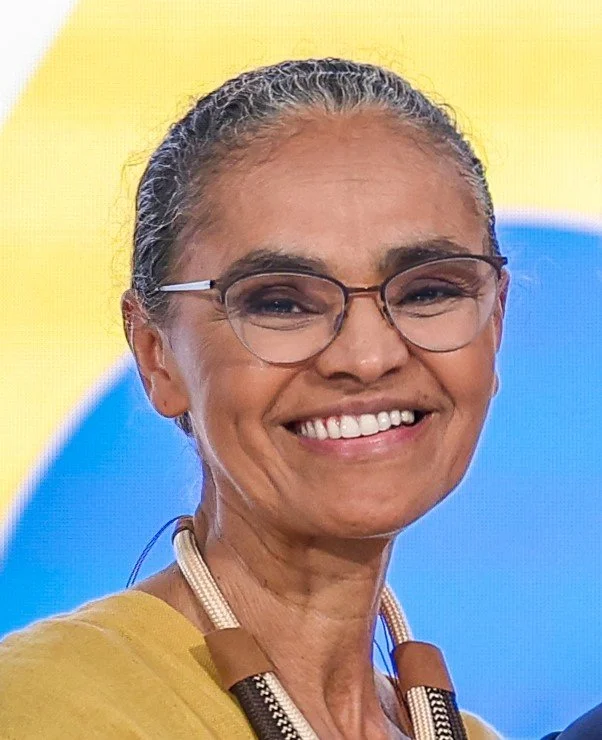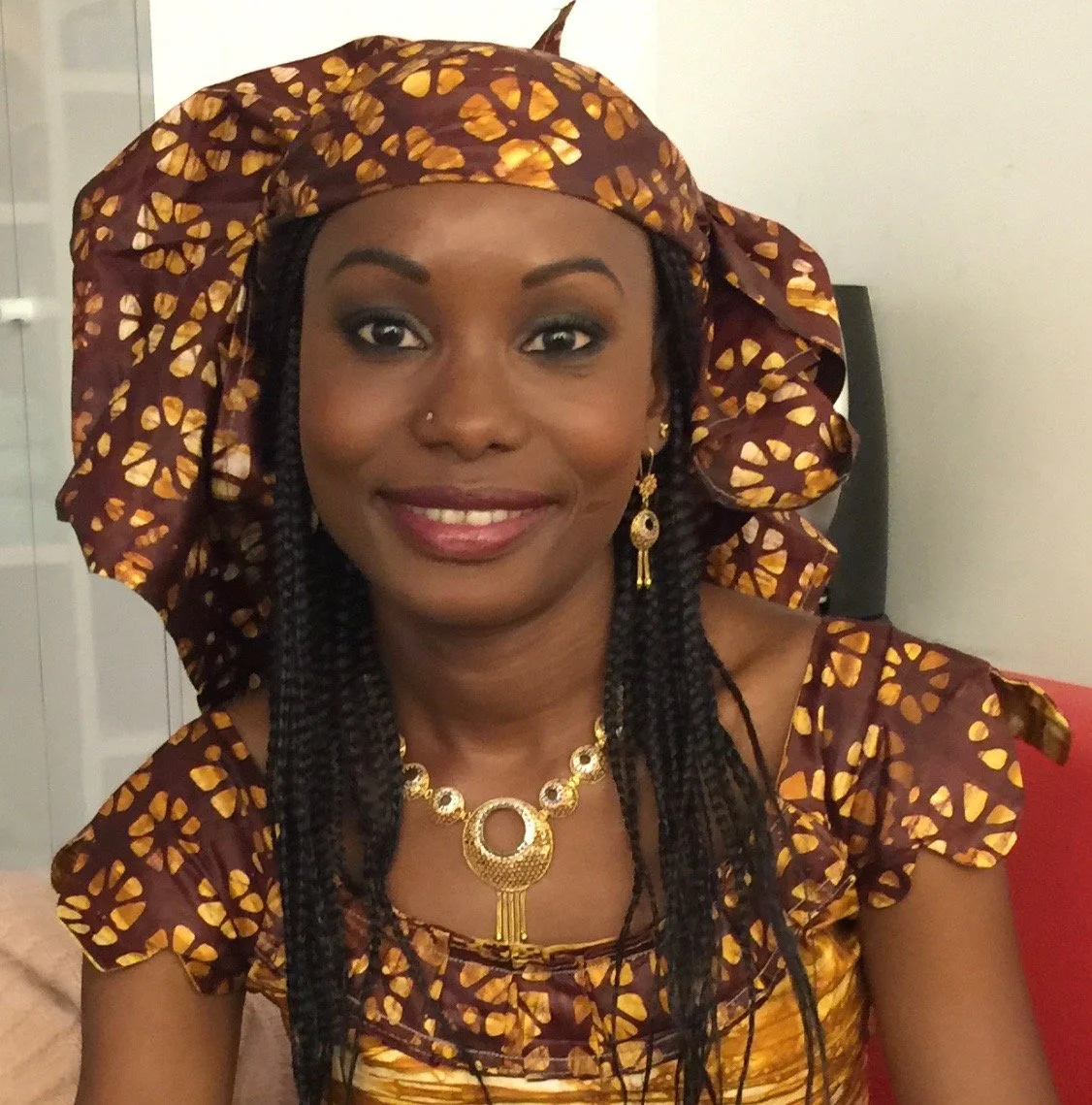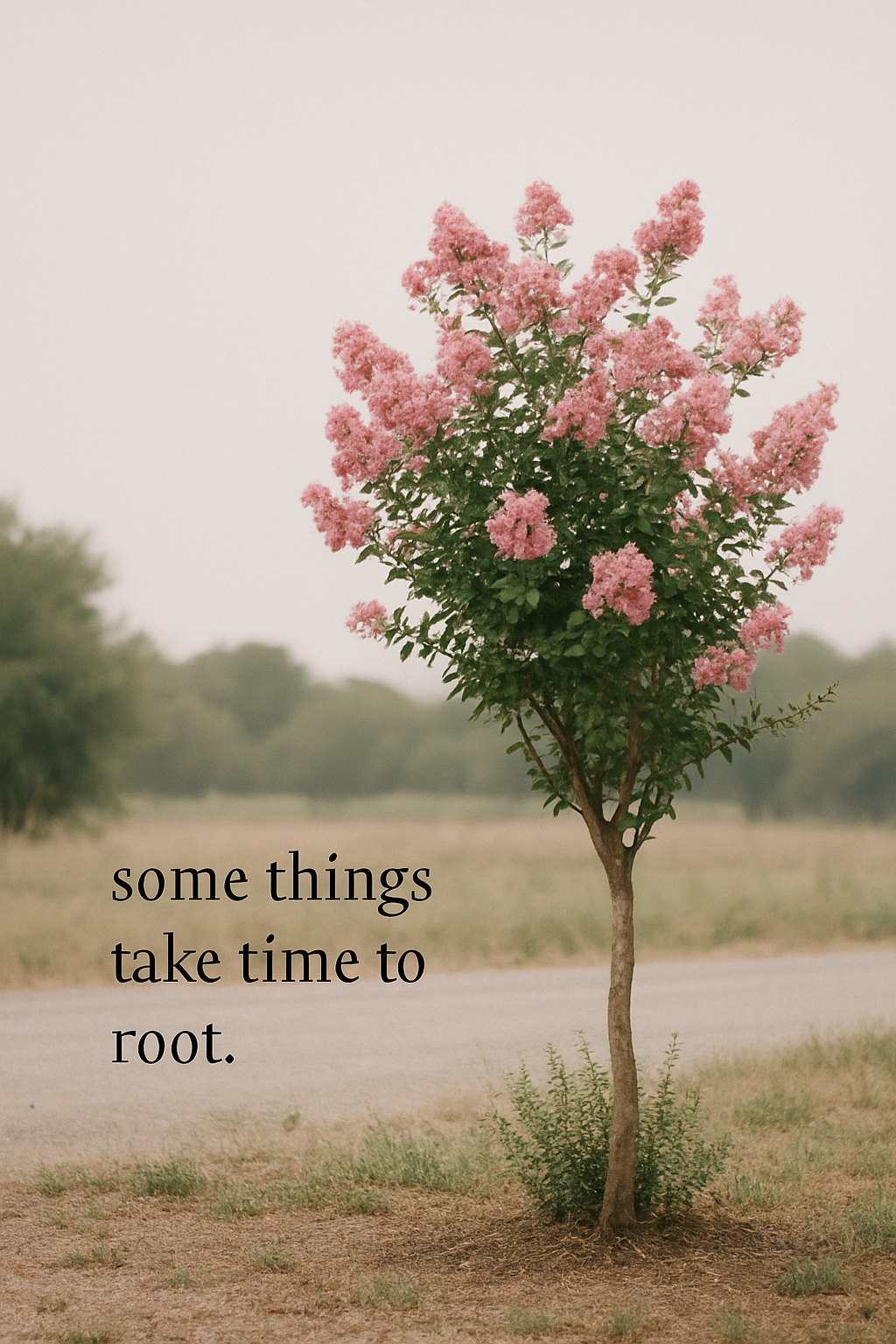Rooted and Rising
Women Reimagining the Planet and Their Place in It
How do we stay steady when life keeps shifting underneath us?
A career ends or begins, the kids move out, our bodies change—or maybe it’s something quieter. A moment when we realize we’ve simply outgrown an older version of ourselves.
June, with its long light and slow growth, always brings that question back to me. It reminds me that it’s okay to re-root. To take up space again. To plant something new—even if we’re not sure yet what it will become.
This month, around World Environment Day, I’ve been thinking about the women who are doing this kind of work. Not just the visible environmental work—though that matters deeply—but also the internal work of rebuilding, of reclaiming their place in the world, of showing up differently after change.
These stories aren’t about perfection or grand gestures. They’re about steady courage. About reconnecting with what matters, whether that’s the land, a calling, or a part of ourselves we’ve set aside for too long.
I hope they inspire you—wherever you are in your own season of change.
What It Means to Be Rooted and Rising
We often think of roots as things that hold us down. But in nature, they do the opposite—they keep trees standing through storms, droughts, even fire.
And some roots, like those of the lodgepole pine or the fireweed plant, actually need disturbance to regenerate. They lie dormant until heat or upheaval wakes them up. Only then do they rise.
That’s the kind of growth we’re talking about this month.
“Rooted and Rising” is about the quiet strength that comes from knowing what matters—and holding onto that, even when everything else is changing.
It’s about women who’ve been through it: loss, migration, reinvention, menopause, midlife shifts. Some of them have chosen change. Others had it forced on them. Either way, they’ve found a way to stay grounded while reaching toward something new.
It’s not about bouncing back. It’s about growing differently.
Science tells us that trees in a forest are connected underground by a vast network of fungi—what researchers call the “Wood Wide Web.” Older trees share nutrients with saplings. Wounded roots heal alongside others.
Resilience, it turns out, isn’t just personal. It’s communal.
I see that same wisdom in women—especially those navigating midlife, when the script we’ve been following starts to feel too narrow or outdated.
It’s a time that can feel like a quiet earthquake: invisible from the outside, but powerful underneath.
We start asking deeper questions:
Who am I now?
What do I want to grow next?
What am I no longer willing to carry?
The women in this issue—whether protecting rainforests, preserving Indigenous knowledge, or using storytelling as resistance—are showing us new ways to belong.
Not by fitting in, but by taking root on their own terms.
So if you’re in a season of change or reflection, I hope their stories remind you:
You don’t have to start over to rise.
You just need to begin where you are—and grow from there.
Women Who Are Doing the Work
Here are three women who truly embody the idea of being both rooted and rising. Their stories aren’t about perfection or spotlight—they’re about purpose, persistence, and showing up for what matters, even when the path isn’t easy.
🌿 Marina Silva – Defender of the Amazon (Brazil)
Marina Silva didn’t come from privilege, politics, or polished speeches. She was born in the state of Acre, in the heart of the Amazon, into a family of rubber tappers. She grew up in poverty, lost her mother young, and battled multiple illnesses—including malaria and hepatitis. At 16, she moved to the city for medical treatment—and there, she learned to read and write for the first time.
But that was only the beginning.
What sets Marina apart is her unshakable belief that environmental justice and social justice go hand in hand. She began as a cleaner in a convent, became a student activist, and soon joined forces with environmentalist Chico Mendes, co-founding Acre’s first rubber tappers’ union. From there, she rose through local and national politics and went on to serve as Brazil’s Minister of the Environment from 2003 to 2008 under President Lula.
During that time, she helped implement groundbreaking policies that cut Amazon deforestation by nearly 60%. Today, decades later, she’s back in government—serving once again under Lula as Minister of the Environment and Climate Change. Still fighting. Still rooted in the same values that shaped her in the forest.
Marina reminds us that real change doesn’t require a perfect starting point—just deep roots and consistent action.
🎥 Watch Her Story Unfold
In this powerful TEDx talk, Marina shares how her life—shaped by the forest, her ancestors, and the power of words—taught her that anyone can help shape the future. It's a message of hope, courage, and authorship.
👉 Watch: Everyone Can Do It – Marina Silva at TEDxRio+20
🌍 Hindou Oumarou Ibrahim – Bridging Indigenous Knowledge and Climate Action (Chad)
Hindou comes from the Mbororo pastoralist community in Chad—a nomadic group that has lived in close relationship with the land for generations.
She grew up seeing firsthand how climate change was disrupting that balance: desertification, water scarcity, disappearing pastures. But she also saw something else—her people held knowledge the world wasn’t paying attention to.
So she spoke up.
Hindou began mapping natural resources in partnership with Indigenous communities, combining their traditional knowledge with digital technology. Through her work with the Indigenous Peoples of Africa Coordinating Committee and the UN, she’s become a global advocate—not just for climate action, but for representation and equity in that conversation.
She challenges the idea that science and tradition are at odds. Instead, she shows how they can work together to protect the earth and the people who depend on it most. Her story speaks to legacy—honoring where you come from while pushing systems to evolve.
For any of us trying to bridge the old and the new in our own lives, Hindou’s voice is one worth listening to.
🎥 Wisdom That Doesn’t Need Wi-Fi
In this powerful TED talk, Hindou shares how her grandmother could forecast the weather with astonishing accuracy—by reading the sky, the plants, and the animals.
Her message is clear: true climate solutions must include the voices and knowledge of Indigenous communities.
If you’ve ever wondered whether your roots could be part of the solution—watch this.
👉 Watch: Indigenous Knowledge Meets Science to Take On Climate Change – Hindou Oumarou Ibrahim
🎨 Mónica Carrillo Zegarra – Climate Justice Through Creativity and Culture (Peru)
Mónica Carrillo isn’t just an activist—she’s a poet, a journalist, and a bold voice for Afro-Peruvian women. She founded LUNDU, an organization working at the intersection of race, gender, and climate justice, giving young people—especially girls—a space to dream, speak, and lead.
What makes her work stand out is how she uses art and storytelling as tools for healing and change. From public art installations to poetry workshops, she helps communities process the trauma of exclusion and environmental harm—and turn that pain into power.
In a world where statistics and policies often dominate the climate conversation, Mónica reminds us of something vital:
Stories matter. Language matters. Culture matters.
She shows us that reclaiming your voice can be just as revolutionary as reclaiming the land.
If you’ve ever felt dismissed or unseen, Mónica’s work offers a powerful reminder that your perspective isn’t just valid—it’s needed.
🎥 Faces of Power, Voices of Resistance
In this intimate video, Afro-Peruvian poet and activist Mónica Carrillo shares the roots of her book Rostros de Violencia, Rostros de Poder (“Faces of Violence, Faces of Power”).
With quiet strength, she reveals how memory, identity, and voice can challenge systemic racism and gender-based violence—while offering paths to healing and change.
If you’ve ever wondered whether your story could make a difference—start here.
👉 Watch: Historias I: Mónica Carrillo Zegarra
Reflection Prompt
This week, pause and ask yourself:
“Where am I being called to re-root or rise?”
It could be something small—like changing a habit that no longer serves you.
Or something bigger—like standing up for a cause you care about.
If you’d like a little structure, I’ve created a downloadable tool to support you:
✨ Eco & Empathy Journal —a simple, calming guide designed to nourish both your inner reflection and your outer impact.
🌍 What the Earth Teaches
The earth teaches us that everything changes—
but also that everything returns.
Leaves fall.
Seeds rest.
And then one day, without much warning, new growth shows up.
This month, I hope you see those green shoots in your own life.
Quiet Power: Women Who Keep the World Going
Three years ago, when I moved into our home in Budoia, I planted five small trees alongside the driveway: two Malus 'Evereste' (flowering crabapples), one Pyrus calleryana (ornamental pear), a Prunus serrulata—a Japanese cherry—and a crape myrtle (Lagerstroemia indica). They were tiny then—barely up to my waist. I remember wondering if they’d survive that dry, exposed patch by the driveway, but I hoped they’d settle in, take root, and grow with us.
They’re still not much taller today, but they’ve held on—through freezing winters, muddy springs, and harsh summer heat.
The crape myrtle—tough, quiet, and late to bloom—waits all season, then bursts into color when most other flowers are done, showing up when the rest of the garden has already given up.
Watching it bloom made me stop. Not everything shows up early—or easily. And some show their strength not by how fast they grow, but by how steadily they keep going. That’s what I’ve been thinking about lately—especially when I look at the women around me.
What Real Change Looks Like
Not all revolutions are loud. Some happen quietly—in kitchens, classrooms, therapy rooms, gardens, and community centers. Women doing the work that keeps things going. They’re not looking for praise or visibility. They’re leading a support group. Coaching a daughter’s volleyball team. Starting a side hustle from the kitchen table. Teaching someone how to grow herbs on a balcony or repair a pair of jeans instead of tossing them.
They’re rebuilding after burnout, heartbreak, or starting life over in a new place. They’re going back to school at 50, or figuring out how to stay present with what’s right in front of them.
Not chasing applause. Just doing what needs to be done.
This week’s newsletter is for them—for the ones who start small and keep showing up. The ones who prove that meaningful change doesn’t have to be fast or flashy. Sometimes it’s just caring enough to try again, or passing something useful along, or quietly staying the course.
That kind of change doesn’t trend. But it’s the kind that sticks.
Women Who Show Up—and Keep Going
Sometimes change starts with a quiet decision—I’ll stay. I’ll speak up. I’ll begin with what I have.
Here are three women whose stories remind me what steady, meaningful action really looks like.
Christiana Figueres – Climate Diplomat, Costa Rica
In 2010, after the Copenhagen climate summit collapsed in disappointment, Christiana Figueres was asked to take over the negotiations. It was a mess. Trust was gone. Many believed it couldn’t be fixed. But she didn’t barge in with ego. She brought persistence and a plan. She shifted the tone. She listened. And she stayed with it.
Over the next six years, she helped guide 195 countries toward the Paris Agreement—a global commitment to reduce emissions and limit warming. It wasn’t perfect, but it was historic. And it happened because she stayed focused on what could be done, instead of what had already failed.
Licypriya Kangujam – Climate Activist, India
Licypriya was just six when she first spoke out about climate change. Not at school, but in front of lawmakers. Her father took her to international conferences, and soon she began addressing leaders at the UN, COP summits, and more.
She founded the Child Movement in 2018 to push for stronger climate action and mandatory environmental education in schools. In 2020, she stood alone outside the President’s House in India to protest Delhi’s dangerous air pollution. No press, no headlines—just a child holding a sign.
A week later, emergency measures were announced. That moment, to me, says it all: courage isn’t always loud. Sometimes it’s one girl who won’t sit down.
Maryam and Noura – Refugee Artisans, Greece (names changed)
Maryam and Noura left behind everything familiar when they fled Syria and Afghanistan. They arrived in Athens with children, trauma, and uncertainty about what came next.
At a sewing cooperative run by refugee women, they found a space to rebuild—not just income, but identity. Everything they sew—bags, aprons, cushion covers—is more than a product. It’s proof that healing can happen through purpose.
The workshop offers skills, safety, and community. They swap fabric, recipes, childcare tips. In a place meant to be temporary, they’re helping build something solid. That’s no small thing.
These women didn’t wait for conditions to improve. They used what they had—determination, focus, and time—and did the work in front of them.
Your Turn
Take a moment this week to ask yourself:
What’s one quiet thing you’ve done—or could do—that feels like your own kind of revolution?
It doesn’t have to be big. It doesn’t have to be public. Maybe it’s:
Fixing something instead of tossing it
Speaking honestly when it would’ve been easier to stay silent
Showing up for a friend when you were running on empty
Teaching someone a small skill they’ll carry forward
Resting when your instinct was to power through
Starting a compost bin, a conversation, a habit—anything that roots care into your day
Stopping yourself from overexplaining and just standing your ground
If something comes to mind, write it down. Mention it to a friend. Say it out loud.
Need a little structure? I’ve created a calming, downloadable tool to support you:
Eco & Empathy Journal — a simple, grounding guide designed to nourish both your inner reflection and your outer impact.










